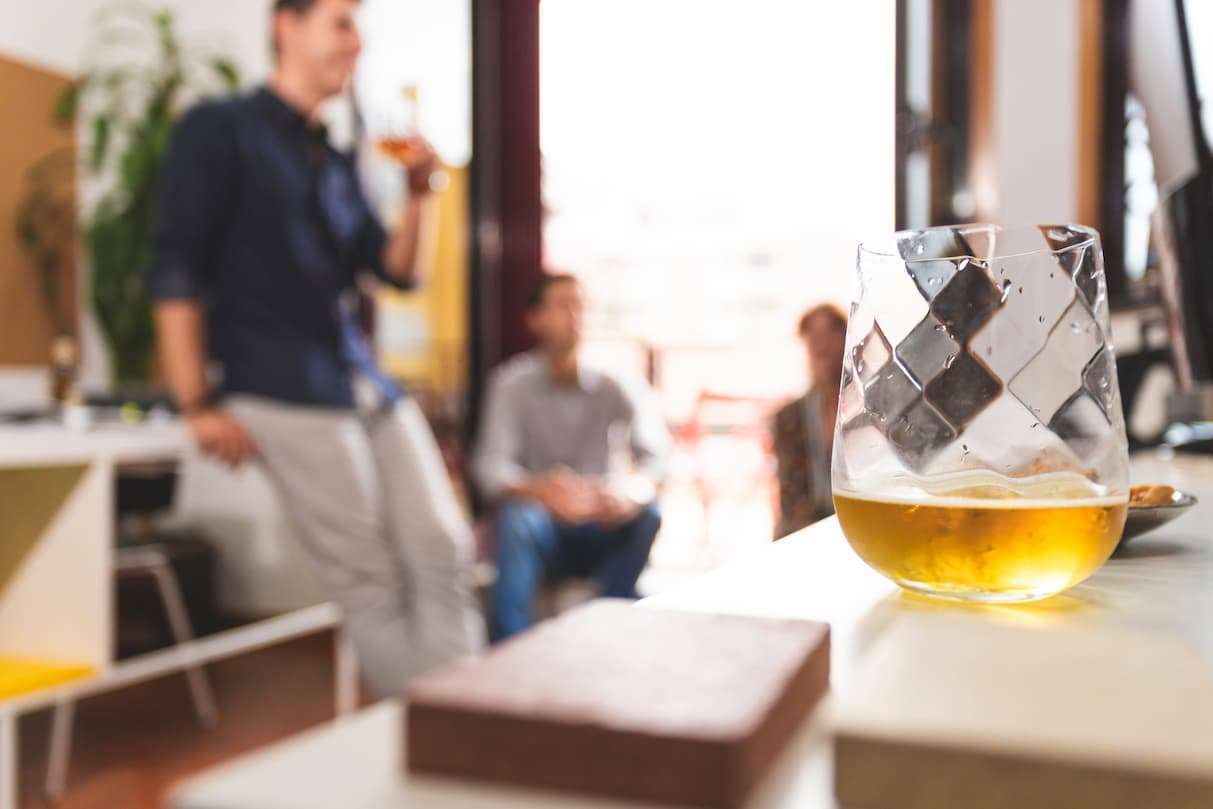As societies evolved, so did the cultural significance and regulation of alcohol. Public policies, community norms, and individual beliefs about drinking continue to influence how alcohol is consumed socially. Understanding the historical context of social drinking provides valuable insights into current drinking practices’ cultural and social underpinnings and the potential for future shifts in consumption patterns. Reflecting on the past can also inform public policy and health interventions aimed at managing the social impact of alcohol use. Although most social drinkers don’t become alcoholics, there are risks involved.
- This trend towards experience-driven consumption highlights the importance of social connection and togetherness in social drinking.
- Individual-level factors that influence alcohol use are nested within home, work, and school environments, which are nested within the larger community.
- Yet the majority of people would not think twice about completely abstaining during a business lunch, regardless of whether they were legally permitted to indulge on the clock.
- It’s characterized by an inability to cut back on alcohol without the help of an addiction treatment professional.
Addiction Treatment Programs
![]()
This is not an exhaustive review but aims to show the wide range of contexts that may shape alcohol use. ” The following 10 signs can help you clarify if the relationship you have with alcohol is bringing about negative consequences. If you’re having trouble stopping or controlling your alcohol use despite any negative consequences from drinking, you may have a problem with alcohol. Some drink socially, https://www.litkonkurs.ru/page/13435/?dr=auth_abc.php while others routinely drink to excess and are well aware of their addiction. As a career prosecutor I can validate what you no doubt already know, that from burglary to battery and a variety of offenses in between, many types of criminality involves alcohol consumption, usually far too much of it. Many people can recover if they go to a specialized rehab center that uses proven treatments.
Decision-making tasks

If you are a recovering addict you may be wondering, “can an alcoholic have an occasional drink? ” Even though social drinking is considered a low-risk activity, any https://claw.ru/a-rings/LordoftheRings/Index2.htm moderate drinking is extremely dangerous for alcoholics. Alcohol of any amount can cause a relapse, and you can potentially lose all your hard work during recovery.

Contact Troop B Public Information Officer: Trooper Brandi M. Ashley
- Knocking back a string of high-alcohol beers or vodka and tonics in front of the TV, even with one’s immediate family around, is a radical departure from traditional drinking practices centered on communal meals and ritually-paced toasting.
- Because of this, there’s no clarity about when social drinking becomes a problem.
- Orehek et al. sought to determine how the feelings and behaviors of the participants would impact the impressions they were making on others.
- Additionally, ignition locks have been used as an intervention to decrease drinking and driving, particularly among adolescents.
- Developmentally appropriate strategies are needed to delay initiation of alcohol use, because the family environment may be less influential compared with the influence of peers, social norms, and media among older adolescents and young adults.
No one should assume the information provided on Addiction Resource as authoritative and should always defer to the advice and care provided by a medical doctor. While it involves alcohol with the primary purpose of socializing, relaxation, and enjoyment rather than getting http://www.randevucity.net/news/main.php?id=4373&id_rub=1&cpage=1 intoxicated or dealing with stressful situations, it could evolve into problem drinking and, in more severe cases, alcoholism. Therefore, it is crucial to identify warning signs that can tell us if social drinking is transitioning into an alcohol-related problem.
In other words, alcohol doesn’t lead them to any serious physical, mental, or emotional issues. The benefits of social drinking are similar to those of moderate alcohol consumption. However, people must make informed choices about their alcohol consumption while considering their situation. Although most social drinkers do not necessarily become alcoholics, they should be aware that this may be a possibility if they are not conscious of their drinking habits. Drinking socially may start as something sporadic, but social drinkers may enter into denial about their relationship with alcohol.
Emotional and Mental Health Problems

Media exposure helps influence social norms about alcohol through advertising, product placements, and stories in a wide range of sources, including movies, television, social media, and other forms of entertainment. Although alcohol sales and marketing are highly regulated, people are exposed to a wide variety of alcohol and liquor advertisements, especially in the United States. Whether these advertisements directly result in an increase in consumption has been the topic of many public policy debates and much alcohol and consumer research. Recent studies have used robust methodological designs in order to assess the effects of advertisements on alcohol consumption (Grenard et al. 2013; Koordeman et al. 2012).
- No, because getting drunk often involves heavy drinking or binge drinking.
- Our findings are contrary to what would be expected based on the widely held dual-process theory of moral cognition [25, 28].
- Addiction Resource does not favor or support any specific recovery center, nor do we claim to ensure the quality, validity, or effectiveness of any particular treatment center.
- Take our short alcohol quiz to learn where you fall on the drinking spectrum and if you might benefit from quitting or cutting back on alcohol.